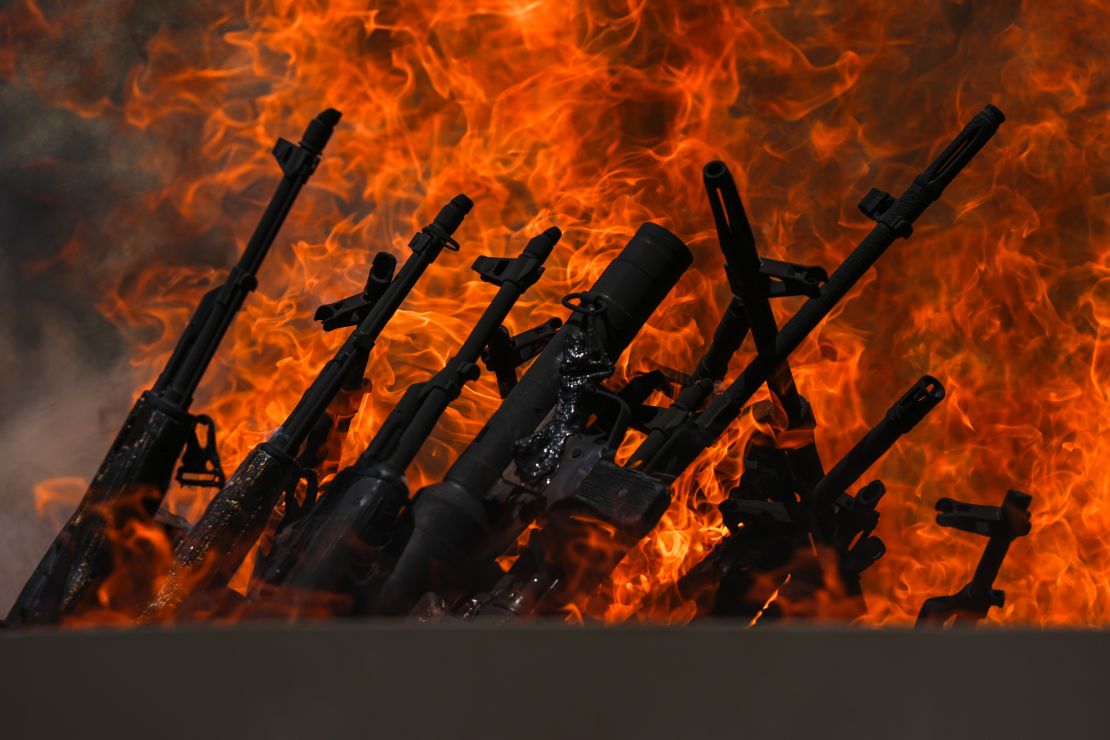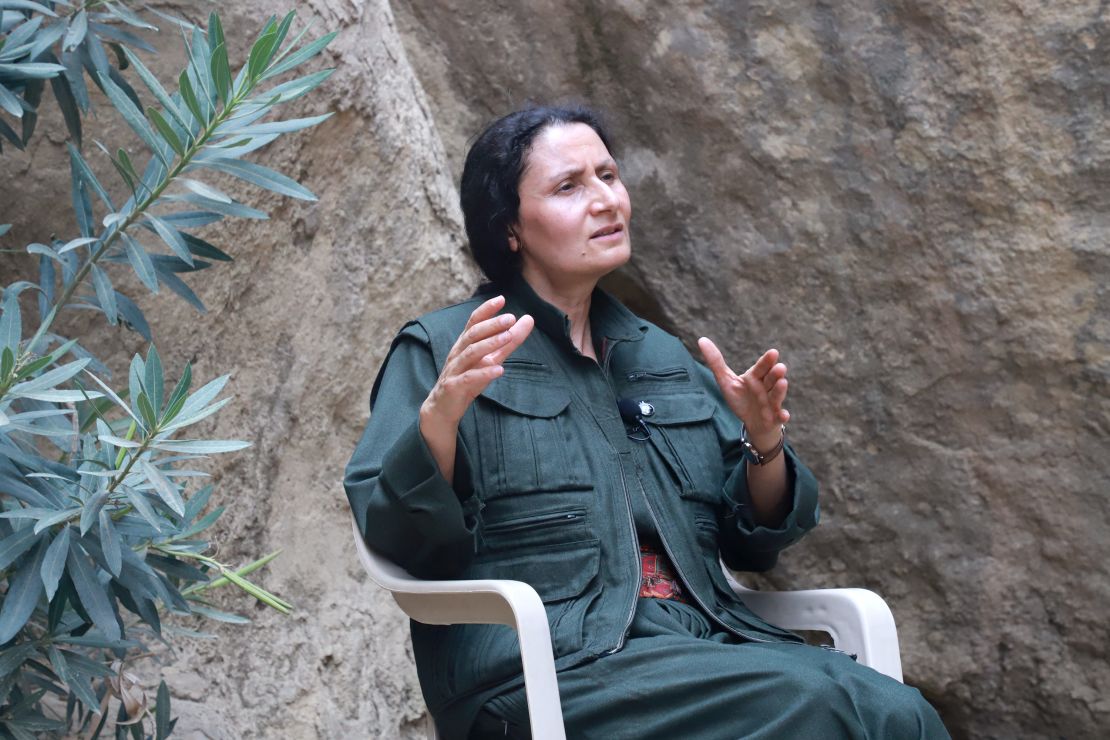CNN
—
A ceremony in northern Iraq on Friday saw a handful of Kurdistan Workers’ Party (PKK) militants lay down their weapons, a small but hugely symbolic gesture that marks the beginning of an end to a conflict with the Turkish state that’s lasted nearly five decades and cost tens of thousands of lives.
Politicians and observers gathered for the ceremony held in the ancient cave of Casene near the town of Sulaymaniyah, where about 30 men and women from the militant group placed their weapons in a large cauldron that was later set on fire.
The PKK fighters announced in a statement their intent to continue the “struggle for freedom” through “democratic politics and legal means.”
“We hereby, of our own free will, and in your presence, destroy our weapons,” the statement said.
Turkish news channels breathlessly reported on the ceremony although, aside from a small group of invited observers, journalists were not allowed into the area. Turkish channels showed helicopters flying over the cave where the ceremony was expected to take place. Convoys of white pick-up trucks and black vans were seen driving to the area.
A senior Turkish official said Friday’s move was an “irreversible turning point” and described it as a “milestone.”
Turkish President Recep Tayyip Erdogan called the day’s events an “important step” on the “path to our goal of a terrorism-free Turkey.”
“May Almighty God grant us success in achieving our goals on this path we walk for the security of our country, the peace of our nation, and the establishment of lasting peace in our region,” he said in a post on X.
Iraq’s foreign ministry also welcomed the PKK’s announcement, writing in a statement that it “considers this step a significant development that embodies a concrete beginning toward disarmament.”
In May, the PKK, which is listed as a terror group in Turkey, the United States and the European Union, announced it would cease “all activities” and dissolve after a call from its jailed leader Abdullah Ocalan. The Kurdish issue has come “to a point where it can be resolved through democratic politics,” the PKK said in a statement at the time.

In a rare video statement this week, the leader urged the Turkish parliament to set up a commission to manage the broader peace process.
Founded by Ocalan in 1978, the PKK has waged a war against the Turkish state for decades.
The group initially fought for an independent state in the Turkey’s predominantly Kurdish southeast. But in recent years, it has called for more autonomy and more comprehensive cultural rights within the country instead.
This is not the first time that Erdogan has tried to end the conflict, which is estimated to have killed more than 40,000 people.
He courted the Kurdish vote in earlier years by granting them more rights and reversing restrictions on the use of their language.

In 2013, Erdogan worked with the pro-Kurdish Peoples’ Democratic Party on the brief peace process with the PKK.
Those talks collapsed in 2015, leading to crackdowns against the pro-Kurdish party, which has been accused by the Turkish government of having links to the PKK and its affiliates.
Selahattin Demirtas, a popular Kurdish politician and co-leader of the Peoples’ Democratic Party who once ran as a presidential candidate, remains in jail after being detained in 2016 and charged with “vague and wide-reaching accusations” including “undermining the unity and territorial integrity of the State,” according to Human Rights Watch.
Kurds are the biggest minority in Turkey, making up between 15% and 20% of the population, according to Minority Rights Group International. They also have a significant presence in northern Syria, northern Iraq and Iran.
CNN’s Aqeel Najim contributed to this report.



